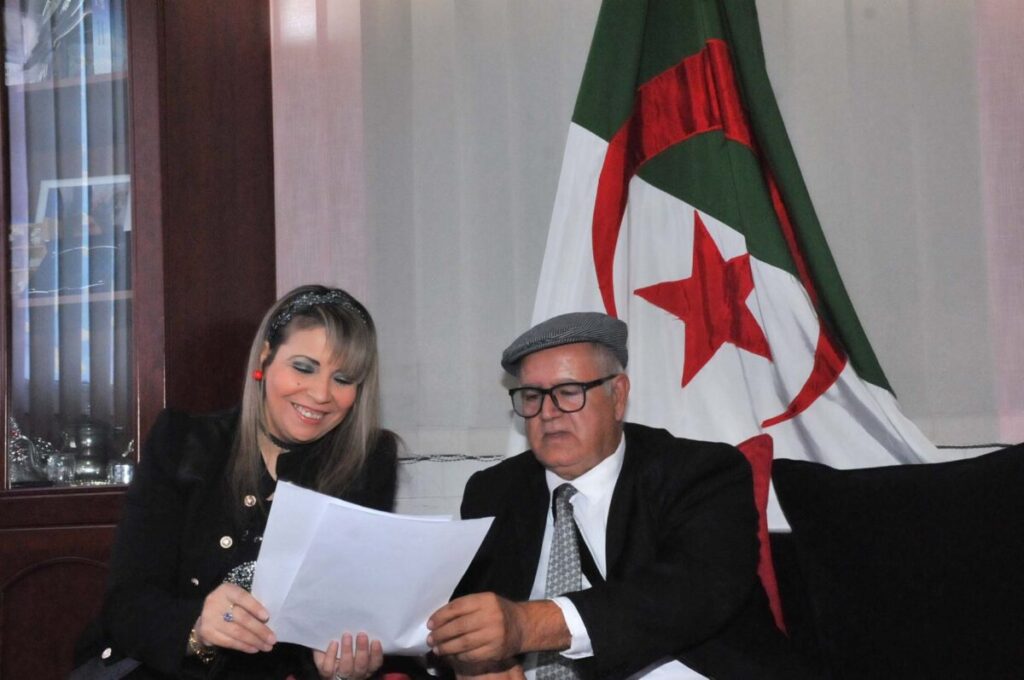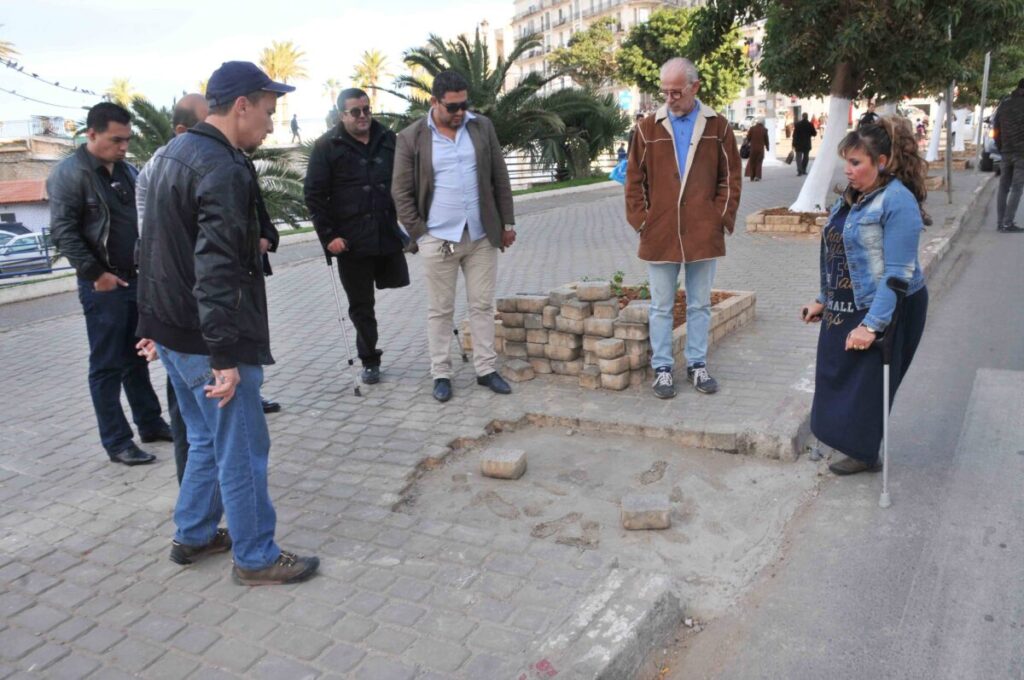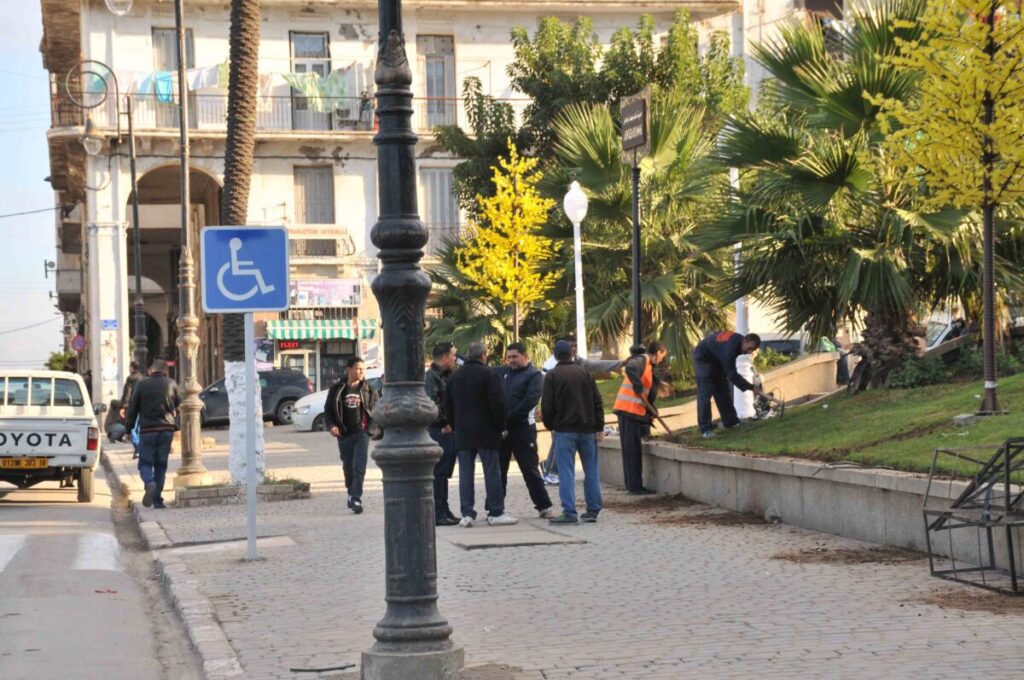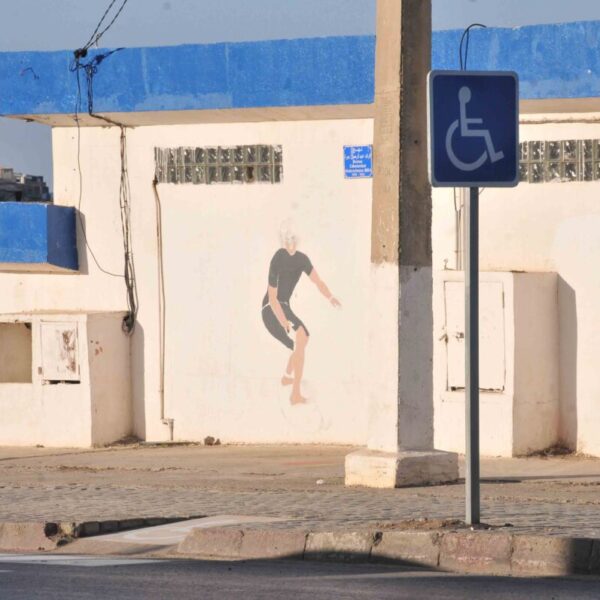In Algeria, people with disabilities face daily accessibility issues in public spaces. The country has adopted a series of strict standards for adapted facilities over the past twenty years. Faced with delays in the implementation of these standards, the El Amel association is actively campaigning to make accessibility a "element of dignity".
It is in a small house located on a square, facing the Mediterranean, that the El Amel association (hope in Arabic) of Bab el Oued took up residence in November 1989. It is one of the first associations created after the end of the era of the single party. "We are the third team to lead the organization," proudly says the president, Hazia Rezig. Along with Abdelghani Kayouche, the vice president, they form the striking force of the association. They work together to support a thousand members living with sensory, motor, mental, psychological, or cognitive disabilities. El Amel's scope of intervention is very wide and not limited to Algiers. However, in recent years, the association has been focusing on the issue of accessibility in public spaces in the capital.
"Provoking Change"

Hazia and Abdelghani acknowledge that there are texts regarding specific accommodations. These include the 2002 law on "Protection and Promotion of Persons with Disabilities" as well as a decree setting out the modalities of "Accessibility of persons with disabilities to the physical, social, economic, and cultural environment." "These texts are very correct, but they are not actually implemented. However, the government regularly emphasizes the obligation to comply with accessibility standards. The latest statement on the subject dates back to last year when the Minister of the Interior instructed the entire administration to enforce this law," notes Hazia Rezig. According to her, the responsibility of the administration and contractors is fully engaged, but this should not hinder the associative movement. "As an association, we have also taken on our responsibilities. It is imperative to engage more actively to raise awareness. It must be understood that accessibility enhances the dignity of people with disabilities. This is what makes these individuals full-fledged citizens," explains the president of El Amel.
Determination has eventually yielded results as an installation program for panels and inclined sidewalks has been carried out in the main streets of Bab el Oued. This project is still ongoing. The significance is that this program can be expanded to all municipalities in the capital. "It is thanks to the former deputy wali (sub-prefect) that we have succeeded in this project. He was later appointed to the wilaya of Tissemsilt (220 km southeast of Algiers) where he initiated, upon taking office, a comprehensive urban accessibility program. It must be acknowledged that we are witnessing an awareness in other regions of the country, such as Laghouat and Médéa," emphasized Abdelghani Kayouche.
Obstacle course
For people with disabilities, especially those in wheelchairs, getting around in Algiers is like going through a real commando training course. When they are not wide enough, the sidewalks are usually cluttered with merchandise from merchants or blocked by cars. The only solution for getting around is to roll on the asphalt, which is particularly dangerous.
So that people can become aware of these difficulties, the association regularly organizes "a moment of disability in a wheelchair" in collaboration with the police services of Algiers. "It is an activity intended for able-bodied people so that they understand what disabled people endure on a daily basis. Those who accept the challenge must travel a distance of 500 meters in the city center. The few people who complete the course end up injuring their hands. But I must say that this activity triggers a real awakening in some," adds Abdelghani.

Right to education and dignity
At the beginning of the school year, the El Amel association launched a very special renovation project in three establishments in Bab el Oued, a primary school, a middle school, and a high school. Financed by a businessman - who preferred to remain anonymous - this action was initiated by the Dzayer Bénévole association. "The objective is to create bathrooms adapted for students with disabilities. These restrooms will have wide doors to allow access with a wheelchair as well as all the necessary facilities. This may seem trivial, but for a disabled student, using the restroom is often a complicated task. There are assistants in schools, but they focus on the educational aspect by helping students in their studies. Generally, it is one of the parents who is present in the establishment when it comes to taking the child to the restroom. Here is another perfect example that confirms that accessibility ensures dignity," explains the president of El Amel.
For Hazia Rezig and Abdelghani Kayouche, people with disabilities are capable of overcoming many challenges as long as the inequalities they face are limited. They point to the results achieved by Algerian athletes at the Paris Paralympic Games as proof. The 24 athletes won six gold medals and five bronze medals, placing them at the top of African teams and 25th globally out of 186 countries in the final medal standings. "We demonstrate on a daily basis that we can achieve a lot. It is true that the environment is often not conducive, but we must not act as resigned victims," insists Hazia.

